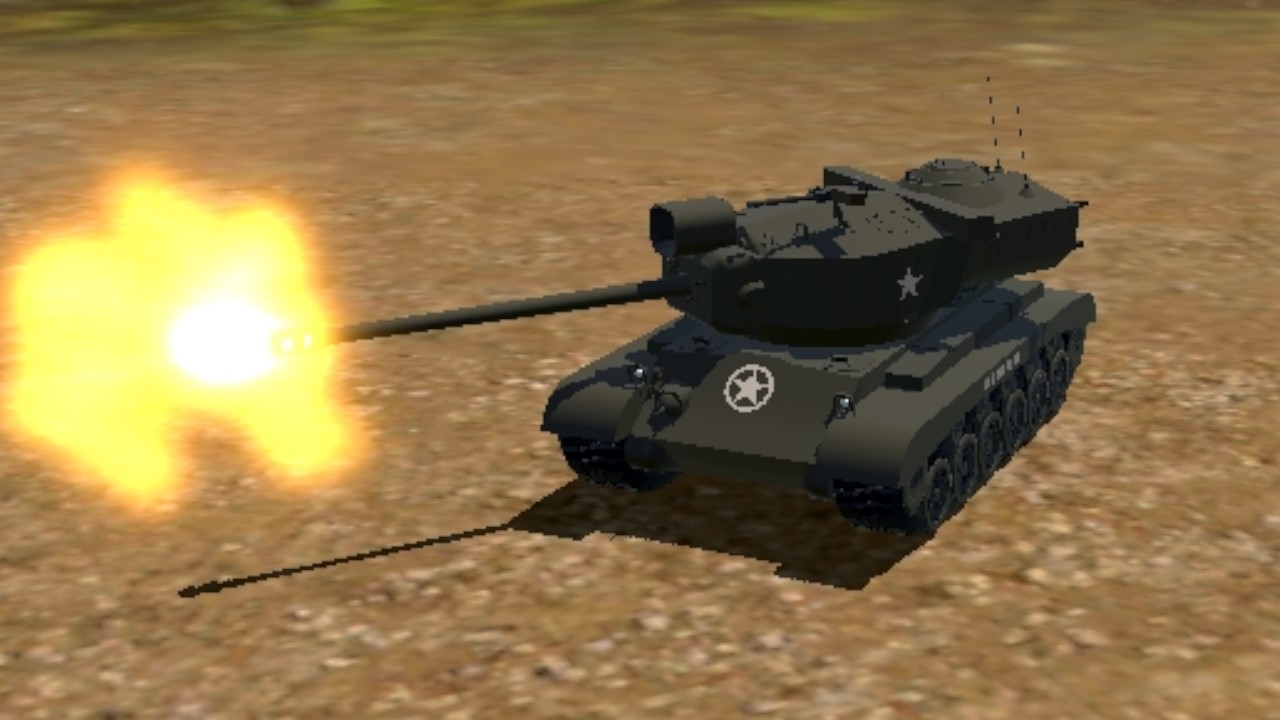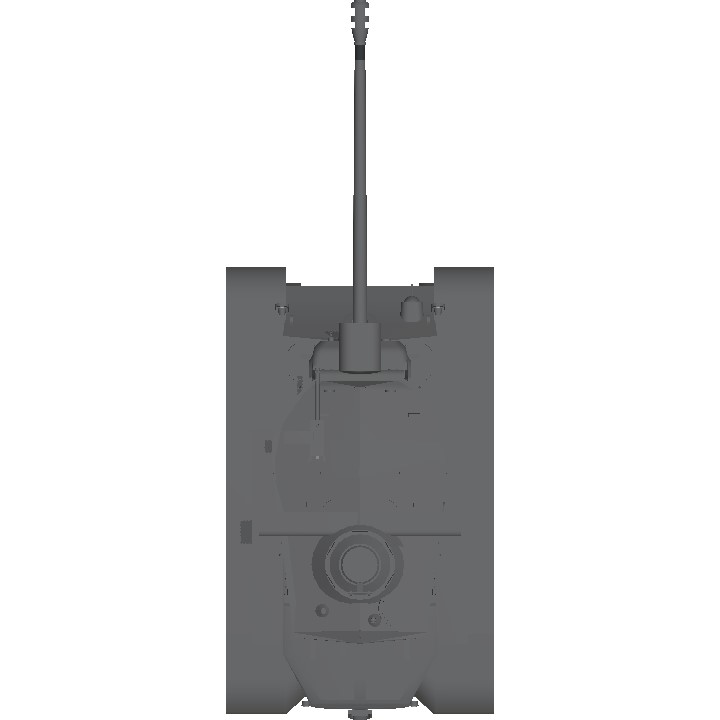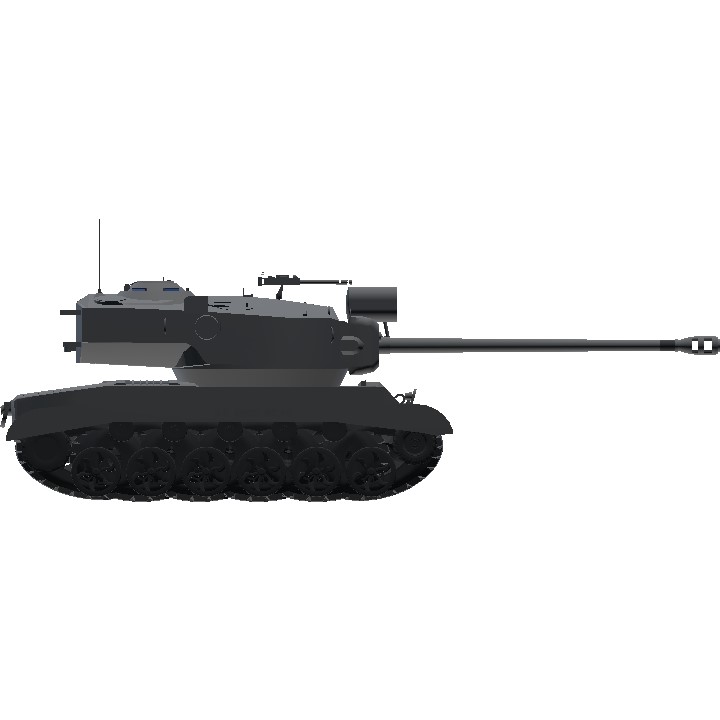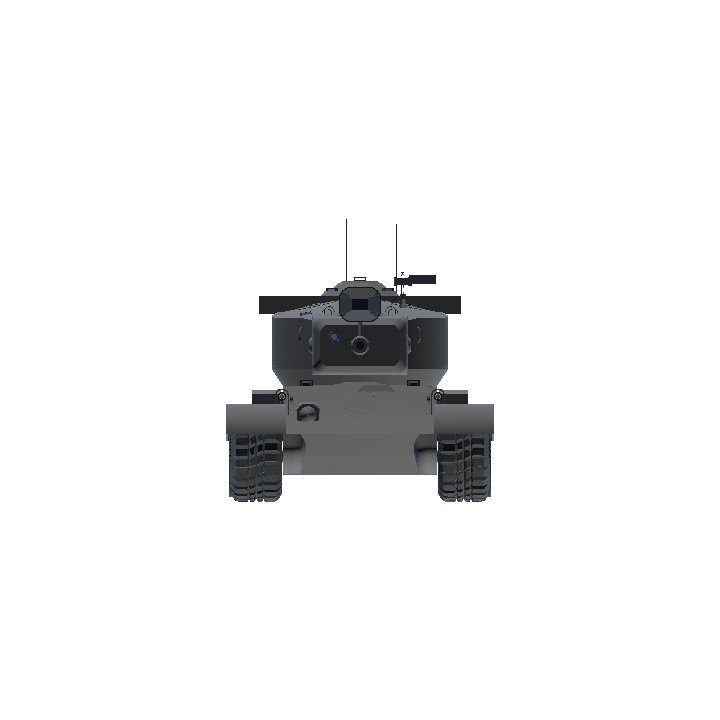Main description
The T45 Eisenhower is a experimental heavy tank that combines the turret of the T29 heavy tank—armed with the formidable T5E1 105mm gun—with the versatile chassis of the M26 Pershing. Developed during the closing years of World War II, this hybrid was intended to serve as a heavy breakthrough tank capable of countering fortified German positions and potentially, post-war, as a response to emerging Soviet armor.
While not mass-produced, the T45 Eisenhower exemplifies a powerful balance between firepower, armor, and mobility, showcasing the advancements and experimental approaches of late-WWII American tank design.
Design Features
The T45 Eisenhower’s turret is borrowed directly from the T29 heavy tank prototype, mounting the potent T5E1 105mm gun. This gun provided the Eisenhower with substantial armor-piercing capabilities, enough to challenge the heaviest German tanks of the era, including the Tiger II. Additionally, the turret had reinforced frontal armor, optimized to protect the gun crew against both kinetic and explosive anti-tank rounds.
The tank also has a installed spotlight/infrared camera, which is very advanced for the tanks at the time.
Chassis and Mobility
Built on the M26 Pershing's hull, the T45 benefited from the M26’s relatively low-profile design and its proven mobility on the battlefield. The powerplant was an upgraded Ford GAF V8 engine, which gave it sufficient power to maneuver with agility for a heavy tank, though it sacrificed some speed compared to the standard M26 due to the heavier turret.
Armor Protection
The T45 featured improved frontal hull armor over the standard Pershing and thicker turret armor to provide additional protection against anti-tank weapons and small arms fire. The turret's thick mantlet and angled armor offered substantial protection for the crew and the weapon system.
Crew
The tank was operated by a five-person crew: commander, gunner, loader, driver, and radio operator/hull gunner. The internal layout remained largely based on the M26’s, with some modifications to fit the larger turret and ammunition racks for the 105mm shells.
Development History
The T45 Eisenhower project began as an experimental response to reports of the increased effectiveness of German heavy tanks on European battlefields in 1944-1945. While the T26E4 Super Pershing variant was already being tested, the need for a heavier platform led American engineers to consider hybrid designs that combined existing proven technology with experimental weaponry.
The development involved mounting the T29 turret on the M26 Pershing hull, which required significant modifications to the chassis and suspension to handle the extra weight. Despite this, the hybrid nature of the T45 made it faster to produce than an entirely new tank design, offering a stop-gap measure while full heavy tank programs, like the T29 and T30, continued.
Performance and Testing
Testing of the T45 Eisenhower proved that the tank could successfully combine the T29’s firepower with the mobility of the Pershing. However, the increased weight of the turret impacted fuel efficiency and limited the operational range, it also impacted the transmission, increasing stress and reducing reliability. The vehicle required frequent maintenance to the suspension and engine when maneuvering in difficult terrain.
Despite its effectiveness in testing, the T45 Eisenhower was ultimately deemed unnecessary as World War II, and the Korean War ended, and the focus of American armor development shifted to countering Soviet designs due to its outdated design in terms of combat. In conclusion, the T45 Eisenhower was just an experimental tank at its stages and meant on what the designers and engineers could do at the time, but also proved to be far too outdated later on and having a very long development time.
Only a small number of prototypes were produced, and the T45 project was shelved in favor of other designs.
Only one T45 Eisenhower remains, it was used as a range target, it was later recovered after a few explorers and a group of campers have found its location and being reported later after.
The single T45 Eisenhower, No.45, remains at a museum and is currently at display with other tanks.
Legacy and Influence
Though it never entered mass production, the T45 Eisenhower influenced post-war tank designs and served as a valuable experiment in hybrid tank development. Many of the lessons learned from the T45 program contributed to the future M47 and M48 Patton tanks, which emphasized a similar balance between mobility, firepower, and protection.
In historical records, the T45 Eisenhower is often remembered as an impressive "what-if" of WWII tank design, symbolizing American ingenuity and adaptability in armor technology during one of history's most intense periods of mechanized warfare.
Controls/credits in instructions
Have fun!
Specifications
Spotlights
- WritersCrusadersAirCo2 one year ago
General Characteristics
- Created On Android
- Wingspan 12.5ft (3.8m)
- Length 33.5ft (10.2m)
- Height 13.2ft (4.0m)
- Empty Weight 74,642lbs (33,857kg)
- Loaded Weight 75,493lbs (34,243kg)
Performance
- Wing Loading N/A
- Wing Area 0.0ft2 (0.0m2)
- Drag Points 3813
Parts
- Number of Parts 362
- Control Surfaces 0
- Performance Cost 1,854





Tags
@WritersCrusadersAirCo2
@LoganAviation
@DISHWASHER2005 Bro real lol
GORGEOUS
please don't give WarGaming idea to make another money generator
🤣😂
@Zero0Two2 Cool work
It'll be pleasure to see you build creative works with my crafts
@WritersCrusadersAirCo2 thanks.
@Zero0Two2 Boom! Finally give you a spotlight
@KAIST I have used some of your nice work and put them into my builds and credited you, what is your thoughts about this?
Nice T29 Turret
@Zero0Two2 this is really cool!
T29 my beloved
@WritersCrusadersAirCo2 no problem, wait for the cooldown
Another Great tank! Unfortunately I ran out of spotlights.. sorry bud